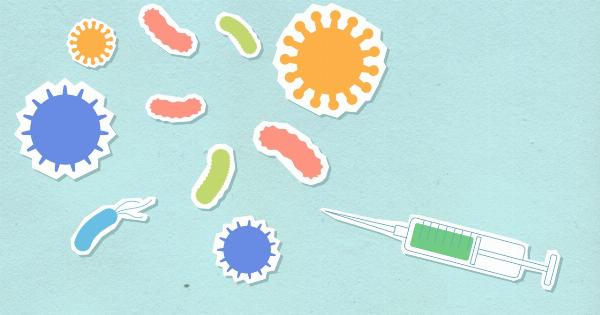Herpes stomatitis is a common infection caused by the herpes simplex virus (HSV). It affects the mouth, including the gums, tongue, lips, and inside of the cheeks. The condition is characterized by small, painful blisters that can appear in clusters.
The blisters may burst and form scabs, which can take up to two weeks to heal. Herpes stomatitis is usually a mild condition, but it can be more severe in some cases.
Causes of Herpes Stomatitis
The herpes simplex virus is the cause of herpes stomatitis. The virus can be contracted through close contact with a person who has an active outbreak of the virus. This can happen through kissing, sharing utensils, or touching the affected area.
The virus can also be spread through sexual contact.
Symptoms of Herpes Stomatitis
The symptoms of herpes stomatitis are usually mild and include:.
- Small, painful blisters
- Sore throat
- Fever
- Swollen glands
- Loss of appetite
The symptoms usually appear within two to twelve days after exposure to the virus and can last for up to two weeks. In some cases, the symptoms can be more severe, especially in people with weakened immune systems.
Treatment for Herpes Stomatitis
There is no cure for herpes stomatitis, but there are treatments that can help manage the symptoms. These include:.
- Pain relief medication such as ibuprofen or acetaminophen
- Oral antiviral medication such as acyclovir
- Antibiotics if a secondary bacterial infection occurs
- Mouthwashes or sprays to numb the affected area
- Keeping the affected area clean and dry to prevent infection
It is important to avoid touching or scratching the blisters as this can cause the infection to spread to other parts of the body.
Preventing Herpes Stomatitis
Herpes stomatitis is highly contagious, and the virus can be spread even when there are no visible symptoms. To prevent the spread of the virus, it is important to practice good hygiene. This includes:.
- Washing your hands regularly with soap and water
- Avoiding close contact with someone who has an active outbreak
- Not sharing utensils or personal hygiene items such as toothbrushes or towels
- Avoiding sexual contact with someone who has an active outbreak
- Using a dental dam during oral sex
If you have had a previous outbreak of herpes stomatitis, you may be more likely to experience future outbreaks. In this case, it is important to take steps to reduce your risk of future outbreaks, such as managing stress and getting enough rest.
When to See a Doctor
If you experience symptoms of herpes stomatitis, it is important to see a doctor. Your doctor can diagnose the condition based on your symptoms and may order tests to confirm the diagnosis.
In some cases, the symptoms of herpes stomatitis can be similar to those of other conditions, such as canker sores or oral thrush. Your doctor can help determine the underlying cause of your symptoms and recommend the appropriate treatment.
Complications of Herpes Stomatitis
In most cases, herpes stomatitis is a mild condition that resolves within a few weeks. However, in some cases, complications can occur. These include:.
- Encephalitis, a rare but serious condition that causes inflammation of the brain
- Meningitis, an infection of the lining around the brain and spinal cord
- Esophagitis, inflammation of the esophagus
If you experience severe symptoms or have a weakened immune system, it is important to seek medical attention immediately.




























